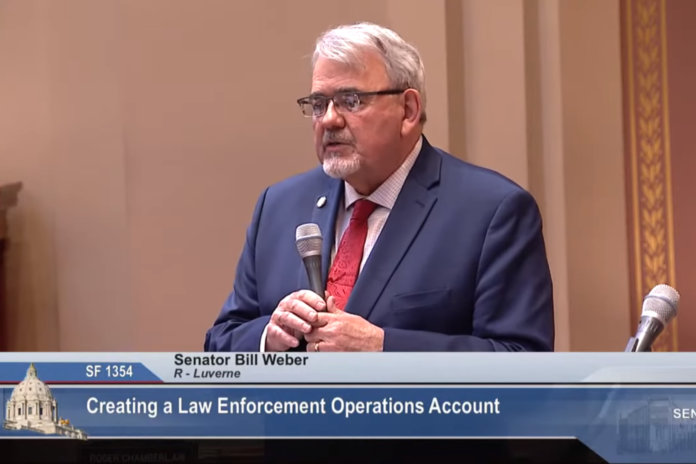(The Center Square) — On Monday evening, the Minnesota Senate approved a $20 million fund to reimburse outside law enforcement help during extraordinary emergencies. Those resources could be accessed by state and local law enforcement following an emergency.
The bill seeks to create a $20 million fund from the General Fund to which tribal and local entities can apply.
However, there’s no deal in the DFL-dominated House.
“Keeping the streets safe is what people expect from their government,” Senate Majority Leader Paul Gazelka, R- East Gull Lake, said in a statement. “And in times of extraordinary need, law enforcement officers from across the state stepped up to keep us all safe. This bill puts safety first for every Minnesotan while supporting law enforcement with the resources they need.”
Eligible costs include mutual aid, overtime, food, lodging, damaged or destroyed equipment, and emergency management costs. Jurisdictions experiencing the emergency can qualify for reimbursement for up to 75% of their expenses, and assisting jurisdictions can receive the full 100%.
Under SF 1354, mutual-aid agreements, which have been activated to pay for help ranging from riots to flooding, would be handled by a five-member panel including two chiefs, three sheriffs, and the commissioner of public safety.
Applicants would have 90 days following the event to request funds.
The bill also seeks to delay limitations and police use-of-force training passed in the police accountability bill last year by six months until September instead of March.
The safety fund follows after May riots following George Floyd’s death in police custody sparked more than $500 million of damages in the Twin Cities.
The bill also seeks to retroactively prohibit the state from spending disaster relief funds to cover damage caused by civil unrest.
If signed into law, the bill would force Hennepin County to repay the $12 million Walz approved from a disaster relief fund to rebuild riot damage.
Senate Democrats complained the bill wasn’t negotiated with House Democrats. Gazelka said negotiations fell apart because House Democrats wanted to “defund the police”, he alleged.
Sen. Torres Ray, DFL-Minneapolis, argued there were no bills to “defund the police.”
For months, Walz has pushed a $35 million fund to pay for unexpected emergencies, which Republicans have characterized as a “bailout” for Minneapolis.
However, the parties did reduce the cost by $15 million.
Ray argued that Minneapolis’ police misconduct and payouts were a more expensive problem than paying for emergencies. The Center Square reported Minneapolis paid out $24 million in police settlements, mostly from police misconduct lawsuits, from 2018-2020.
Sen. Scott Dibble, DFL-Minneapolis, said his city contributes 3.5 times more tax dollars than it receives back, sending over $2 billion to state coffers. Minneapolis doesn’t get all that money back, he noted.
Dibble argued that just as Minneapolis taxpayers fund rural emergency relief, rural taxpayers should likewise fund urban emergencies.
Sen. Bobby Joe Champion, DFL-Minneapolis, argued Republicans pushed this bill past the committee and straight to a floor vote, which wasn’t transparent.














